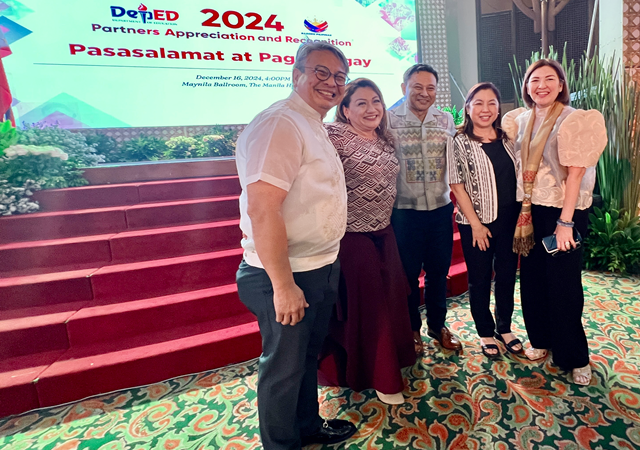Doctors Without Borders: Providing lifesaving medical care patients in Yemen

“Their life is not so much different than ours: they go to work, take care of their family, conflicted between going back to school or getting married and having children. Except that it’s not the same at all. Except that the war has taken their life away from them, and they just want to have it back.”
Indonesian doctor Rangi W. Sudrajat spent five months in Yemen, working with Doctors Without Borders/Médecins Sans Frontières (MSF) to provide lifesaving medical care to the neglected Yemenis.
Yemen has been in a protracted civil war since 2015. Hundreds of thousands, including innocent civilians, have been killed in the brutal conflict. United Nations estimates that more than 233,000 had been killed. Since November 2020, more than 22,000 airstrikes have been recorded.
The aerial and ground bombing of vital infrastructure, including health facilities, have deprived the people of goods and aid, leaving millions of Yemenis with inadequate access to food, safe water and healthcare. The COVID-19 pandemic has exacerbated this suffering.
For Rangi, five months in Yemen were an eye-opening experience. “Coming from a place and time of peace, the idea of being inside an active war didn’t register very well in my mind.”
“Before Yemen, I saw the war in a landscape perspective: on TV and far away,” she said. But on her first day in Yemen, Rangi got a close up of what it meant to be in an active war.
“We were on the way from Sana’a to Doctors Without Borders Mother and Children Hospital, in Taiz. The car was at a checkpoint, and there was a soldier standing by my window. Then he suddenly opened fire across the road,” she said.
She remembered a moment of breathless terror as she looked around at the equally terrified passengers in the vehicle. “For seconds that felt like a lifetime, another soldier signaled our driver to drive on and leave the checkpoint.”
“I had never seen a gun so close in my life, let alone a firing one, and my first reaction was to flee. I remember I was planning to book the first flight home and never look back,” she said.
But the first flight home had to wait, as she observed the vast medical needs in Yemen.
Rangi was stationed in the Pediatric, Neonatal and Nutrition Wards in Doctors Without Borders Taiz Mother and Children Hospital (MSH). “In my first months there, I realized that the demand was increasing. With many health facilities struggling during the war, sick children were coming to us often as their last resort. Newborns, sick kids with all kinds of diseases, and malnourished children were coming daily from all over and beyond Taiz. The hospital was swamped with patients,” she said.
To deal with many patients, Doctors Without Borders increased the hospital’s capacity by opening new rooms, and by recruiting doctors and nurses to facilitate patients and treat them. By September 2016, the Department of Paediatrics, Neonatal, and Nutrition of Taiz MCH had admitted more than 3,000 children over a period of 10 months.
Rangi was amazed by her fellow medical and non-medical colleagues, many of whom had buried somebody they knew due to the war. “They cross the frontlines every single day, startled by the terrible sound of airstrikes and not knowing whether their friends and family would be safe, but continue their work and service for the people of Taiz.”
The Abs Hospital was bombed on August 15, 2016, in an airstrike, killing 19 people, including Doctors Without Borders staff. “The day after the news about the airstrike in Abs Hospital broke out, I expected none of the staff would show up at work. How could you continue to work in a hospital while other hospitals were bombed? But they did. ‘It’s better to be at work, take my mind off things. Besides, I’m a doctor, I need to help,’ one of the doctors explained to me,” she said.
“The doctors just want to be able to return to their homes without having to cross the dangerous frontlines; the nurses just want to be able to take care of their family without being in constant fear of guns and airstrikes. Each one of them just wants to be able to move on with their lives in this beautiful country of theirs, or what’s left of it, when it is at last peaceful,” she said.
The war, which left many parts of the country in rubble, has also shred at any sense of security the people had, living behind nothing but constant fear.
Malaysian emergency doctor Lim Chin Siah had been with the organization for three years before he arrived in Yemen. There he worked at health facilities supported by Doctors Without Borders in Yemen, from January to May 2016. There, he witnessed that prevailing sense of fear firsthand.
“I was stationed in the Abs Hospital in the Hajjah Governate, which was the only hospital in the district. The next nearest hospital was two hours away,” he said.
Abs district hosts around 150,000 displaced people who had to leave their homes because of the war ravaging their country.
The Doctors Without Borders emergency room and operation theatre in the hospital saw a lot of mass casualty incidents that come in waves. Patients arrived in cars and sometimes trucks, which would go back and forth to deliver more patients. They also saw many malnourished children and those suffering from pneumonia.
“There are times when we see more than a hundred patients in one day,” he said.
It seemed like the airstrikes happened daily, and so many trauma cases. “We could hear the planes going by and some thundering sounds in the nearby place. Sometime we could even see smoke in the distance, and we know we have to prepare for mass casualty incidents. It was quite scary knowing that airstrikes were happening such a short distance away.”
The sound of airplanes whizzing caused such fear in his patients that many fled the hospital mid-treatment. “There was this one case when we were treating a child in the emergency room. He was having a seizure, and we were trying to stabilize him to stop the episode. A plane went by, and the mother, who was nearby, just picked up the child, who was still seizing. She ran out the gate.”
When Lim looked out the window, he saw other patients fleeing the hospital. “I was thinking ‘Oh my God…,’ but we had to stay put to prepare for the possibility of a mass casualty incident,” he said.
Doctors Without Borders has worked in Yemen since 1986, where it has one of its biggest emergency responses. In 2019, 2,500 of our staff served 12 hospitals and healthcare centers in the country, including in Hajjah, Aden, Khamer, Taiz and Hayden. The organization supports more than 20 healthcare facilities in 12 governorates across the country. Doctors Without Borders is an international, independent medical humanitarian organization that delivers emergency aid to people affected by conflict, epidemics, healthcare exclusion and natural or human-made disasters. The organization has more than 400 projects in over 70 countries worldwide. ###







